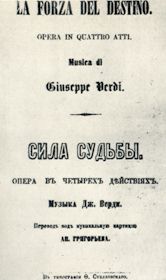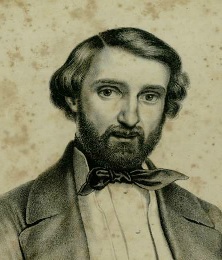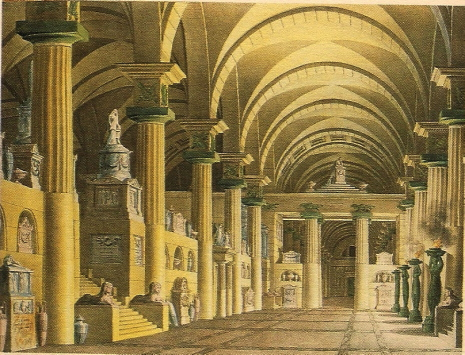|
Kate Aldrich
Kate Aldrich (born October 31, 1973, Damariscotta, Maine) is an American mezzo-soprano. She has performed with the Metropolitan Opera, San Francisco Opera, Teatro Colón in Buenos Aires, the Hamburg State Opera, Teatro Regio (Turin), Rossini Opera Festival, Los Angeles Opera, Opéra de Montréal, the Deutsche Oper am Rhein in Düsseldorf, Teatro Nacional de São Carlos in Lisbon, National Theatre in Prague, and the New York City Opera. Her roles include Carmen, Antoine Mariotte's Salome, Octavian in ''Der Rosenkavalier'', Cesare and Sesto in ''Giulio Cesare'', Isabella in ''L'italiana in Algeri'', Rosina in ''Il barbiere di Siviglia'', Angelina in ''La Cenerentola'', Arsace in ''Semiramide'', Zelmira in ''Zelmira'', Fenena in ''Nabucco'', Preziosilla in ''La forza del destino'', Eboli in ''Don Carlos'', Dalila in ''Samson et Dalila'', Sesto in ''La clemenza di Tito'', Giulietta in ''Tales of Hoffmann'' and Dulcinée in ''Don Quichotte''. Aldrich rose to international fame in 20 ... [...More Info...] [...Related Items...] OR: [Wikipedia] [Google] [Baidu] |
Damariscotta, Maine
Damariscotta (/ dæmrɪˈskɒtə/ ) is a town in Lincoln County, Maine, United States. The population was 2,297 at the 2020 census. Damariscotta is the oyster capital of New England. A popular tourist destination, the towns of Damariscotta and Newcastle are linked by the Main Street bridge over the Damariscotta River, forming the "Twin Villages". The name Damariscotta derives from a native place-name meaning place of abundance of small fish (alewives). History The area was once inhabited by the Wawenock (or Walinakiak, meaning "People of the Bays") Abenaki Indians, who left behind 2,500-year-old oyster shell middens along the banks of the Damariscotta River. The Whaleback Shell Midden is now a state historic site. The land became part of the Pemaquid Patent, granted by the Plymouth Council in 1631 to Robert Aldsworth and Gyles Elbridge, merchants from Bristol, England. At Pemaquid (now Bristol), they built a fort and trading post. Some colonists moved upriver from the village ... [...More Info...] [...Related Items...] OR: [Wikipedia] [Google] [Baidu] |
Giulio Cesare
''Giulio Cesare in Egitto'' (; , HWV 17), commonly known as ''Giulio Cesare'', is a dramma per musica ('' opera seria'') in three acts composed by George Frideric Handel for the Royal Academy of Music in 1724. The libretto was written by Nicola Francesco Haym who used an earlier libretto by Giacomo Francesco Bussani, which had been set to music by Antonio Sartorio (1676). The opera was a success at its first performances, was frequently revived by Handel in his subsequent opera seasons and is now one of the most often performed Baroque operas. The opera's plot is loosely based on historic events during the Roman Civil War of 49–45 BC. Composition history ''Giulio Cesare in Egitto'' was first performed at the King's Theatre in the Haymarket, London on 20 February 1724. The opera was an immediate success. A contemporary wrote in a letter on 10 March 1724: ...the opera is in full swing also, since Hendell's new one, called Jules César – in which Cenesino and Cozzun ... [...More Info...] [...Related Items...] OR: [Wikipedia] [Google] [Baidu] |
Zeffirelli
Gian Franco Corsi Zeffirelli (12 February 1923 – 15 June 2019), was an Italian stage and film director, producer, production designer and politician. He was one of the most significant opera and theatre directors of the post-World War II era, gaining both acclaim and notoriety for his lavish stagings of classical works, as well as his film adaptations of the same. A member of the Forza Italia party, he served as the Senator for Catania between 1994 until 2001. Films he directed included the Shakespearean adaptations ''The Taming of the Shrew'' (1967), starring Elizabeth Taylor and Richard Burton; '' Romeo and Juliet'' (1968), for which he received a nomination for the Academy Award for Best Director; and ''Hamlet'' (1990), starring Mel Gibson and Glenn Close. His Biblical television miniseries '' Jesus of Nazareth'' (1977) won both national and international acclaim and is still frequently shown at Christmas and Easter in many countries. A Grande Ufficiale OMRI of the It ... [...More Info...] [...Related Items...] OR: [Wikipedia] [Google] [Baidu] |
Don Quichotte
''Don Quichotte'' (''Don Quixote'') is an opera in five acts by Jules Massenet to a French libretto by Henri Caïn. It was first performed on 19 February 1910 at the Opéra de Monte-Carlo. Massenet's ''comédie-héroïque'', like many dramatized versions of the story of Don Quixote, relates only indirectly to the novel ''Don Quixote'' by Miguel de Cervantes. The immediate inspiration was ''Le chevalier de la longue figure'', a play by the poet first performed in Paris in 1904. In this version of the story, the simple farm girl Aldonza (Dulcinea) of the original novel becomes the more sophisticated Dulcinée, a flirtatious local beauty inspiring the infatuated old man's exploits. Composition history Conceiving originally ''Don Quichotte'' to be a three-act opera, Massenet started to compose it in 1909 at a time when, suffering from acute rheumatic pains, he spent more of his time in bed than out of it, and composition of ''Don Quichotte'' became, in his words, a sort of "soothin ... [...More Info...] [...Related Items...] OR: [Wikipedia] [Google] [Baidu] |
The Tales Of Hoffmann
''The Tales of Hoffmann'' (French: ) is an by Jacques Offenbach. The French libretto was written by Jules Barbier, based on three short stories by E. T. A. Hoffmann, who is the protagonist of the story. It was Offenbach's final work; he died in October 1880, four months before the premiere. Composition history and sources Offenbach saw a play, , written by Barbier and Michel Carré and produced at the Odéon Theatre in Paris in 1851. After returning from America in 1876, Offenbach learned that Barbier had adapted the play, which had now set to music at the Opéra. Salomon handed the project to Offenbach. Work proceeded slowly, interrupted by the composition of profitable lighter works. Offenbach had a premonition, like Antonia, the heroine of Act 2, that he would die prior to its completion. Offenbach continued working on the opera throughout 1880, attending some rehearsals. On 5 October 1880, he died with the manuscript in his hand, just four months before the opening. ... [...More Info...] [...Related Items...] OR: [Wikipedia] [Google] [Baidu] |
La Clemenza Di Tito
' (''The Clemency of Titus''), K. 621, is an '' opera seria'' in two acts composed by Wolfgang Amadeus Mozart to an Italian libretto by Caterino Mazzolà, after Pietro Metastasio. It was started after most of ' (''The Magic Flute''), the last of Mozart's principal operas, had already been written. The work premiered on 6 September 1791 at the Estates Theatre in Prague. Background In 1791, the last year of his life, Mozart was already well advanced in writing ' by July when he was asked to compose an '' opera seria''. The commission came from the impresario Domenico Guardasoni, who lived in Prague and who had been charged by the Estates of Bohemia with providing a new work to celebrate the coronation of Leopold II, Holy Roman Emperor, as King of Bohemia. The coronation had been planned by the Estates in order to ratify a political agreement between Leopold and the nobility of Bohemia (it had rescinded efforts of Leopold's brother Joseph II to initiate a program to free the ser ... [...More Info...] [...Related Items...] OR: [Wikipedia] [Google] [Baidu] |
Samson Et Dalila
''Samson and Delilah'' (french: Samson et Dalila, links=no), Op. 47, is a grand opera in three acts and four scenes by Camille Saint-Saëns to a French libretto by Ferdinand Lemaire. It was first performed in Weimar at the (Grand Ducal) Theater (now the Staatskapelle Weimar) on 2 December 1877 in a German translation. The opera is based on the Biblical tale of Samson and Delilah found in Chapter 16 of the Book of Judges in the Old Testament. It is the only opera by Saint-Saëns that is regularly performed. The second act love scene in Delilah's tent is one of the set pieces that define French opera. Two of Delilah's arias are particularly well known: "" ("Spring begins") and "" ("My heart opens itself to your voice", also known as "Softly awakes my heart"), the latter of which is one of the most popular recital pieces in the mezzo-soprano/contralto repertoire. Composition history In the middle of the 19th century, a revival of interest in choral music swept France, and Sain ... [...More Info...] [...Related Items...] OR: [Wikipedia] [Google] [Baidu] |
Don Carlos
''Don Carlos'' is a five-act grand opera composed by Giuseppe Verdi to a French-language libretto by Joseph Méry and Camille du Locle, based on the dramatic play '' Don Carlos, Infant von Spanien'' (''Don Carlos, Infante of Spain'') by Friedrich Schiller. In addition, several incidents, of which the Forest of Fontainebleau scene and ''auto-da-fé'' were the most substantial, were borrowed from Eugène Cormon's 1846 play ''Philippe II, Roi d'Espagne''. The opera is most often performed in Italian translation, usually under the title ''Don Carlo''. The opera's story is based on conflicts in the life of Carlos, Prince of Asturias (1545–1568). Though he was betrothed to Elisabeth of Valois, part of the peace treaty ending the Italian War of 1551–59 between the Houses of Habsburg and Valois demanded that she be married instead to his father Philip II of Spain. It was commissioned and produced by the Théâtre Impérial de l'Opéra ( Paris Opera) and given its premiere at the ... [...More Info...] [...Related Items...] OR: [Wikipedia] [Google] [Baidu] |
La Forza Del Destino
' (; ''The Power of Fate'', often translated ''The Force of Destiny'') is an Italian opera by Giuseppe Verdi. The libretto was written by Francesco Maria Piave based on a Spanish drama, ' (1835), by Ángel de Saavedra, 3rd Duke of Rivas, with a scene adapted from Friedrich Schiller's '' Wallensteins Lager'' (''Wallenstein's Camp''). It was first performed in the Bolshoi Kamenny Theatre of Saint Petersburg, Russia, on 29 November 1862 O.S. (N.S. 10 November). ' is frequently performed, and there have been a number of complete recordings. In addition, the overture (to the revised version of the opera) is part of the standard repertoire for orchestras, often played as the opening piece at concerts. Performance history Revisions After its premiere in Russia, ''La forza'' underwent some revisions and made its debut abroad with performances in Rome in 1863 under the title ''Don Alvaro''. Performances followed in Madrid (with the Duke of Rivas, the play's author, in attend ... [...More Info...] [...Related Items...] OR: [Wikipedia] [Google] [Baidu] |
Nabucco
''Nabucco'' (, short for Nabucodonosor ; en, " Nebuchadnezzar") is an Italian-language opera in four acts composed in 1841 by Giuseppe Verdi to an Italian libretto by Temistocle Solera. The libretto is based on the biblical books of 2 Kings, Jeremiah, Lamentations and Daniel and the 1836 play by Auguste Anicet-Bourgeois and Francis Cornu. However, Antonio Cortese's ballet adaptation of the play (with its necessary simplifications), given at La Scala in 1836, was a more important source for Solera than the play itself. Under its original name of ''Nabucodonosor'', the opera was first performed at La Scala in Milan on 9 March 1842. ''Nabucco'' is the opera that is considered to have permanently established Verdi's reputation as a composer. He commented that "this is the opera with which my artistic career really begins. And though I had many difficulties to fight against, it is certain that ''Nabucco'' was born under a lucky star." The opera follows the plight of the Jews as t ... [...More Info...] [...Related Items...] OR: [Wikipedia] [Google] [Baidu] |
Zelmira
''Zelmira'' () is an opera in two acts by Gioachino Rossini to a libretto by Andrea Leone Tottola. Based on the French play, ''Zelmire'' by de Belloy, it was the last of the composer's Neapolitan operas. Stendhal called its music Teutonic, comparing it with ''La clemenza di Tito'' but remarking: "...while Mozart would probably, had he lived, have grown completely Italian, Rossini may well, by the end of his career, have become more German than Beethoven himself!" Performance history The first performance of ''Zelmira'' was in Naples at the Teatro di San Carlo on 16 February 1822. This was followed by a successful premiere in Vienna on 13 April 1822, as part of a three-month-long Rossini Festival for which Rossini wrote some additional music. Performances in several Italian cities were followed by the London premiere on 24 January 1824, with Rossini conducting and Isabella Colbran (now his wife) in the title role. It was seen in Paris in 1826. There was one presentation in the U ... [...More Info...] [...Related Items...] OR: [Wikipedia] [Google] [Baidu] |
Semiramide
''Semiramide'' () is an opera in two acts by Gioachino Rossini. The libretto by Gaetano Rossi is based on Voltaire's tragedy ''Semiramis'', which in turn was based on the legend of Semiramis of Assyria. The opera was first performed at La Fenice in Venice on 3 February 1823. ''Semiramide'' was Rossini's final Italian opera and according to Richard Osborne, "could well be dubbed ''Tancredi Revisited''". As in ''Tancredi'', Rossi's libretto was based on a Voltaire tragedy. The music took the form of a return to vocal traditions of Rossini's youth, and was a melodrama in which he "recreated the baroque tradition of decorative singing with unparalleled skill". The ensemble-scenes (particularly the duos between Arsace and Semiramide) and choruses are of a high order, as is the orchestral writing, which makes full use of a large pit. After this splendid work, one of his finest in the genre, Rossini turned his back on Italy and moved to Paris. Apart from ''Il viaggio a Reims'', which i ... [...More Info...] [...Related Items...] OR: [Wikipedia] [Google] [Baidu] |









